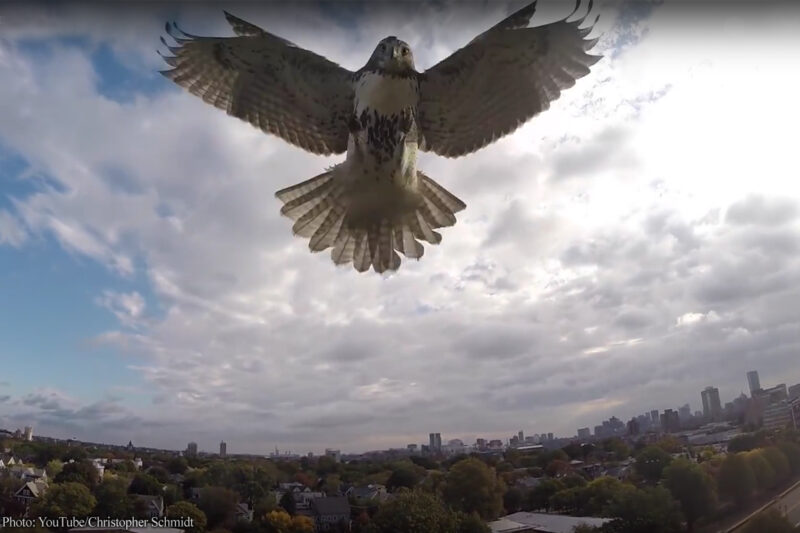
A lot of people are taking it as a given that drones will become ubiquitous in the coming years. But it seems to me that that’s far from a given; there is still a lot of uncertainty over the future of this technology (and therefore over the kinds of privacy threats and free expression opportunities that it will in the end present).
This is an industry that is still in a very early stage of its development, when it is highly sensitive to shocks. Incidents and accidents that happen at this stage can have lifetime effects, lasting many decades. That is especially true with a huge media spotlight on this technology. The amount of press coverage generated by the landing of a harmless toy drone inside the White House fence is indicative here.
Imagine the uproar if we were to see somebody put a gun on a drone and start shooting people remotely. Or drones used to bypass security perimeters and deliver explosives to a high-value target such as the White House. Even if the explosives did no more than blow a small hole in the White House lawn in the middle of the night, hurting no one, that would decisively alter the course of the drone industry.
Another possibility is some kind of spectacular accident. The safety record of this new technology is not great. There has been a lot of paid lately to drone “near-misses” with passenger airliners. (I have heard some experts express doubt that an accidental collision between a small drone and an airliner would cause the airliner to crash—but that’s certainly not something anyone wants subject to uncontrolled real-world tests.) Should a drone bring down an airliner, the drone industry might never recover. Even an accident in which a drone falls out of the sky could be a game-changer. If the 375-pound military drone that onto an elementary school playground in Pennsylvania in April 2014 had killed children, we would likely be having a different conversation today.
Even without anything so dramatic, an accumulation of smaller accidents could shape the technology over time. Any technology that involves complex interactions with human beings will inevitably have some rocky times as we attempt to smoothly integrate it into life. If drones—even small lightweight private ones—are onto people’s rooftops, windshields, and , tolerance for the technology is likely to go down fast. If drones become popular enough that the skies over our neighborhoods are regularly criss-crossed with them, this could well happen—especially given the many unknowns such as whether will routinely .
There may also be a nuisance factor. Even if large numbers of small drones constantly flying overhead turn out not to be dangerous, they may simply annoy people. To start with there's the buzzing noise they make, and of course there’s also privacy. At the ŔĎ°ÄĂĹżŞ˝±˝áąű we have been most focused on the danger that drones will be used to construct regimes of constant wide-area surveillance. And there is a very real potential that private-sector drones may also become a tool for directly harmful privacy invasions. But even without such significant invasions, private-sector drones may spark nebulous feelings of intrusion. I found it interesting in this regard that firefighters in a recently circulated found drones to be annoying enough that they tried to blast them out of the sky with their hoses. When a drone hovered over a crowd of hockey fans after a 2014 game in Los Angeles, a “mob mentality set in” as the LA Times , and “revelers were throwing everything they could to knock the drone down.”
I can't claim to know what motivates people in incidents like these. I do know that while photography in public is a First Amendment right, as a matter of etiquette it is often unacceptable. As I've discussed before, training a camera on someone who does not want to be photographed may be constitutionally protected in public (as is yelling and swearing at them), but it is also perceived as rude.
These kinds of factors may add up to a general feeling by communities that they’d rather do without the putative advantages of widespread drone usage. In this drones may prove to fall into the same category as Google Glass—a widely anticipated and talked about technology that is naively viewed as inevitable, but ultimately one that remains confined to relatively narrow applications due to the subtleties and caprices of human etiquette.
All this makes it very hard to predict what will happen to this technology. In many ways what we're witnessing is a race against time. If drones prove to be useful enough machines with enough practical benefits that Americans feel they can’t live without them, they'll likely tolerate the occasional tragic accident or terrorist attack, as well as a good deal of annoyance. But if the disaster happens first, drones may never get a chance to prove themselves.


